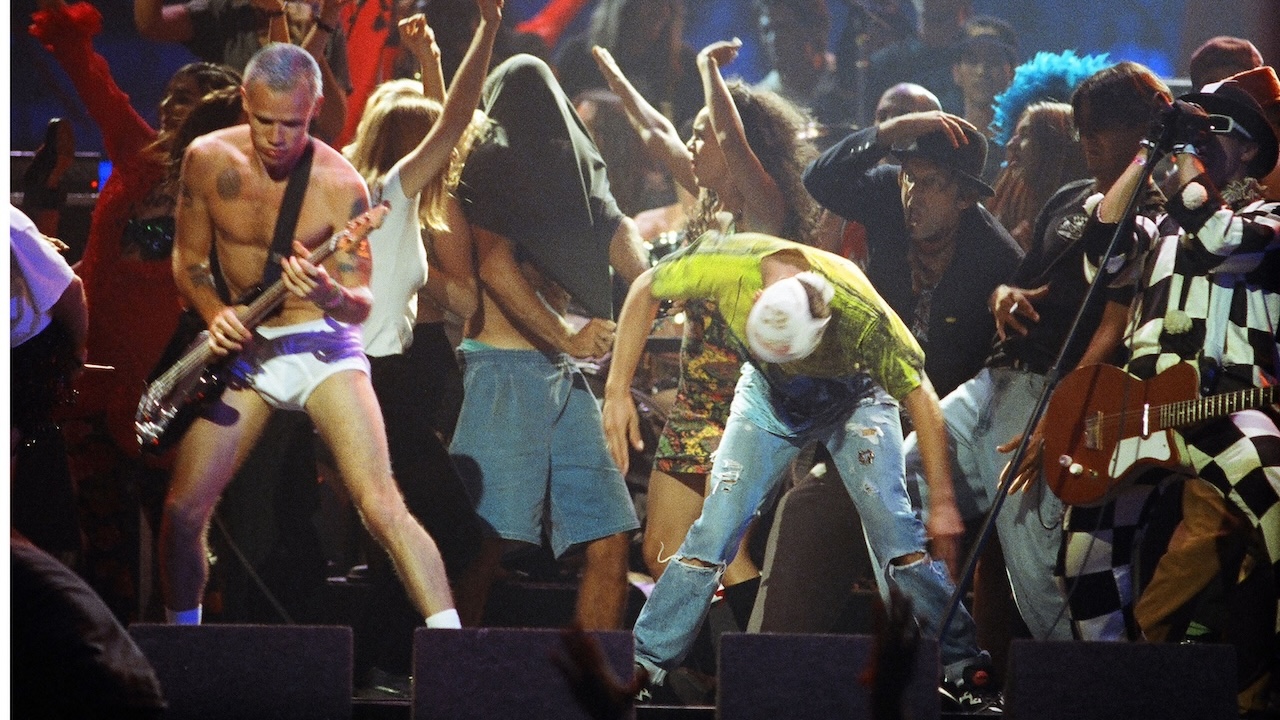Pelican's Laurent Lebec: The Guitar World Interview
All the latest guitar news, interviews, lessons, reviews, deals and more, direct to your inbox!
You are now subscribed
Your newsletter sign-up was successful
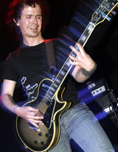
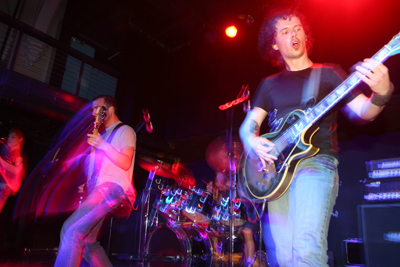
Inspired by the sludgy tones of guitar-heavy underground acts like Kyuss, 5ive and Goatsnake, Chicago's Pelican formed in the late Nineties as an outlet for members of the experimental grindcore band Tusk—guitarists Laurent Lebec and Trevor de Brauw and drummer Larry Herweg—to explore lower tunings and louder volumes. With the addition of Herweg's younger brother Bryan on bass, Pelican were ready when the opportunity arose to open for notorious heshers High On Fire.
“We accepted the gig even though we only had three songs and no singer,” says Lebec, laughing. “It was High On Fire. We couldn't turn that down!” It wasn't long after that Pelican realized their initial shortcoming was an unexpected asset. “All of a sudden, having no vocals just made sense,” says Lebec. “The guitars were really busy, and we just turned up loud enough so they stayed in front of everything else.”
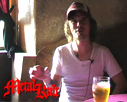
Pelican's unclassifiable instrumental sound has allowed them to tour with such diverse acts as progressive death metal Swedes Opeth, black metallers Nachtmystium and metalcore kids As I Lay Dying. After their impressive 2003 debut, Australasia, Pelican hit their stride with the expansive, riff-heavy follow-up, The Fire in Our Throats Will Beckon the Thaw, both on Hydra Head Records. Pelican's latest album, City of Echoes, was recorded at Steve Albini's Electrical Audio studios with producer Andrew Schneider (Cave In, Keelhaul, Unsane), and released in May 2007.
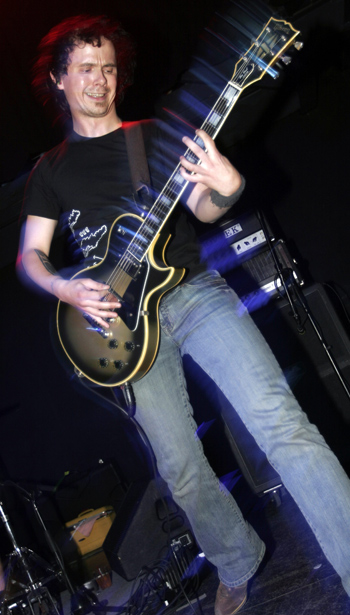
SONIC SENSIBILITY
“Playing music is a sensory thing first and foremost,” says Lebec. “When we first started, the possibility of really feeling the sound enticed us.” For Pelican, this aesthetic was a product of vision and necessity. “Since we started playing in basements without a PA we depended on our own instruments for all our sonic joy. This meant tons of volume coming off the stage! [laughs] It felt raw and honest, like we were flirting with something really big and dangerous,” says Lebec.
Pelican's fascination with intense volume has only increased as the band continues to graduate to larger venues. And while the guitarists' amplified attack certainly reaches dangerous levels onstage, Lebec and de Brauw's bone-shaking compositions take shape on a pair of acoustics. “We start basic and raw,” says Lebec. “Because if we like how it sounds with just me and Trevor jamming on acoustics, it's going to sound incredible when everything's amped.”
DYNAMIC ARRANGEMENTS
Pelican's compositions may often sprawl over 10 minutes in length, but the band does not take a freewheeling approach to writing. “Our songs are born out of a meticulous arranging process. It must be fun to pull an Allman Brothers Band and jam on a progression for two days until you've got a 12 minute song. That's just never been a reality for us.” As an instrumental band, part of Pelican's process is to keep a keen eye on song dynamics. Says Lebec, “If things sound too patterned, people will see right through our tricks. Our music has to have diversity.”
All the latest guitar news, interviews, lessons, reviews, deals and more, direct to your inbox!
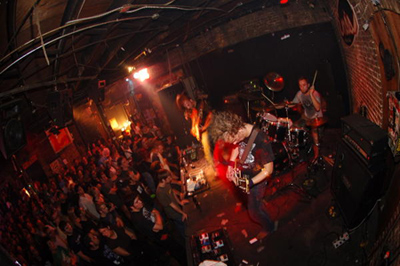
GEAR LOWDOWN
To get his deep, rich tones Lebec uses two Eighties Gibson Les Paul Customs, a Silverburst and a custom-made burgundy, both tuned standard B to B [B-E-A-D-F#-B]. Lebec strings his Pauls with heavy, .013–.056-gauge strings and likes his action low.
Says Lebec, “The gauges are significantly thicker, almost like a baritone guitar, but it lets you gallop on your guitar without the string going with you. It feels and sounds so much better.” For amps, the guitarist opts for the all-valve Sunn Model T, and rounds out his chain with “slight compression, Nord Rack 2 distortion, Ibanez TS-9 Tubescreamer, a Boss delay, and two reverb pedals.” Lebec's co-guitarist de Brauw, fires his '72 Gibson SG, into a Mesa Triple Rectifier head and Mesa 4x12 cab, between which he chains an Ernie Ball Volume pedal, Boss DD-6 Digital Delay, Boss RV-5 Digital Reverb and a Line 6 DL-4 Delay Modeler. To help deliver the rising crescendos central to Pelican's aesthetic, de Brauw takes his cues from Jimmy Page and uses a violin bow.
BEHIND THE BOARD
Classic gear may be crucial to achieving Pelican's mammoth sound, but Lebec credits his soundman for optimizing the group's increasingly complex dynamics in live settings. “I was kinda a caveman before, just turning everything up,” says the guitarist. “But we've evolved. Since we have increased instrumental interplay, a good mix is especially important. We have sound guys who travel with us to help balance the sound. We still sound big, but it's not so excessive that people want to leave the room. A good sound guy is incomparable. I'd say at this point he's single handedly the most important employee we have.”
Brad is a Brooklyn-based writer, editor and video producer. He is the former content director of Revolver magazine and executive editor of Guitar World. His work has appeared in Vice, Guitar Aficionado, Inked and more. He’s also a die-hard Les Paul player who wishes he never sold his 1987 Marshall Silver Jubilee half stack.

